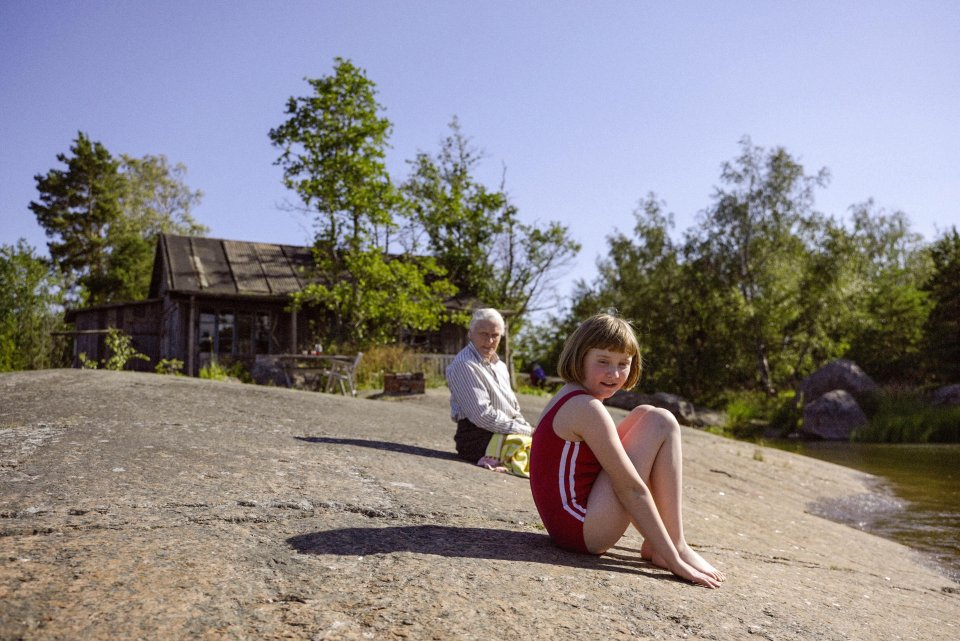By Lucy Forde

Emily Matthews as Sophia (front), and Glenn Close as Grandmother (back) in Charles McDowell’s “The Summer Book.” (Charles McDowell/”The Summer Book” [2025])
On March 15 Charles McDowell’s film adaptation of Tove Jansson’s 1972 novel ‘The Summer Book’ screened at the Boulder International Film Festival, Boulder’s four day presentation of early screenings of films, documentaries, and short films from around the world. The story follows a young girl, Sophia, as she spends a summer with her father and grandmother on an island retreat off the coast of Finland as they grieve the death of Sophia’s mother. Over the course of the story, Sophia bonds with her Grandmother as they both try to overcome grief and the twin struggles of growing up and growing old.
Tove Jansson, best known for creating ‘The Moomins,’ wrote ‘The Summer Book’ after her own mother’s death. As a result, the book is intimately personal. Grandmother’s character is rooted in the positive and fragile light in which Jansson viewed her mother. Sophia is based on Jansson’s niece. Even the novel’s setting is inspired by an island where Jansson spent her summers as a child. Sophia and her grandmother exist as mirror images of childhood and old age. Sophia teaches her grandmother to reflect on the wonders of aging, while Grandmother teaches Sophia the importance of youth, creating an impactful experience of deep reflection and inspiration.
I was interested to see how the book I adored would translate on screen. McDowell’s adaptation beautifully captured the powerful mix of painful loss and childlike innocence at the heart of Jansson’s prose. The film evoked feelings of inspiration and hope by creating an inviting natural beauty that surrounded these lovable characters. From its opening shots of a beautiful landscape and soft clarinet in the background, I immediately felt a sense of peace. The main focus of the film is the interactions between Sophia, played by Emily Matthews and her grandmother, portrayed by Glenn Close. The two are in dramatically different stages of life, but with parallel feelings. At one point Sophia asks Grandmother what it was like to be a young girl on the island, while at another Grandmother asks Sophia “if there are more fish in the sea or stars in the sky.” Sophia is young and unregulated, trying to understand the complex emotions that her mother’s death has evoked in her young mind. Her widowed father has become tired and removed, while she longs for attention and acceptance. Grandmother is slowly coming to terms with the end of her long, beautiful island life. The two rely on each other throughout the film, even when they bicker and grandmother begins to slow down.
When reading the book I never truly understood the parallels between growing up and growing old that the story portrayed, but the movie makes it painfully clear. I felt myself contemplating my own age, what I have learned and what I hope to learn before I grow older. As Grandmother eventually accepts the gifts life has given her, Sophia learns to appreciate the nature that surrounds her and her promising future. The message was deeply resonant for both young and old.
The film was beautiful and moving, creating a sense of natural humanity desperately needed in times like our own. It simplified the human experience so softly, while representing the complexity of emotional change. Both on paper and on screen, ‘The Summer Book’ captures something truly universal about how we pass through life.
